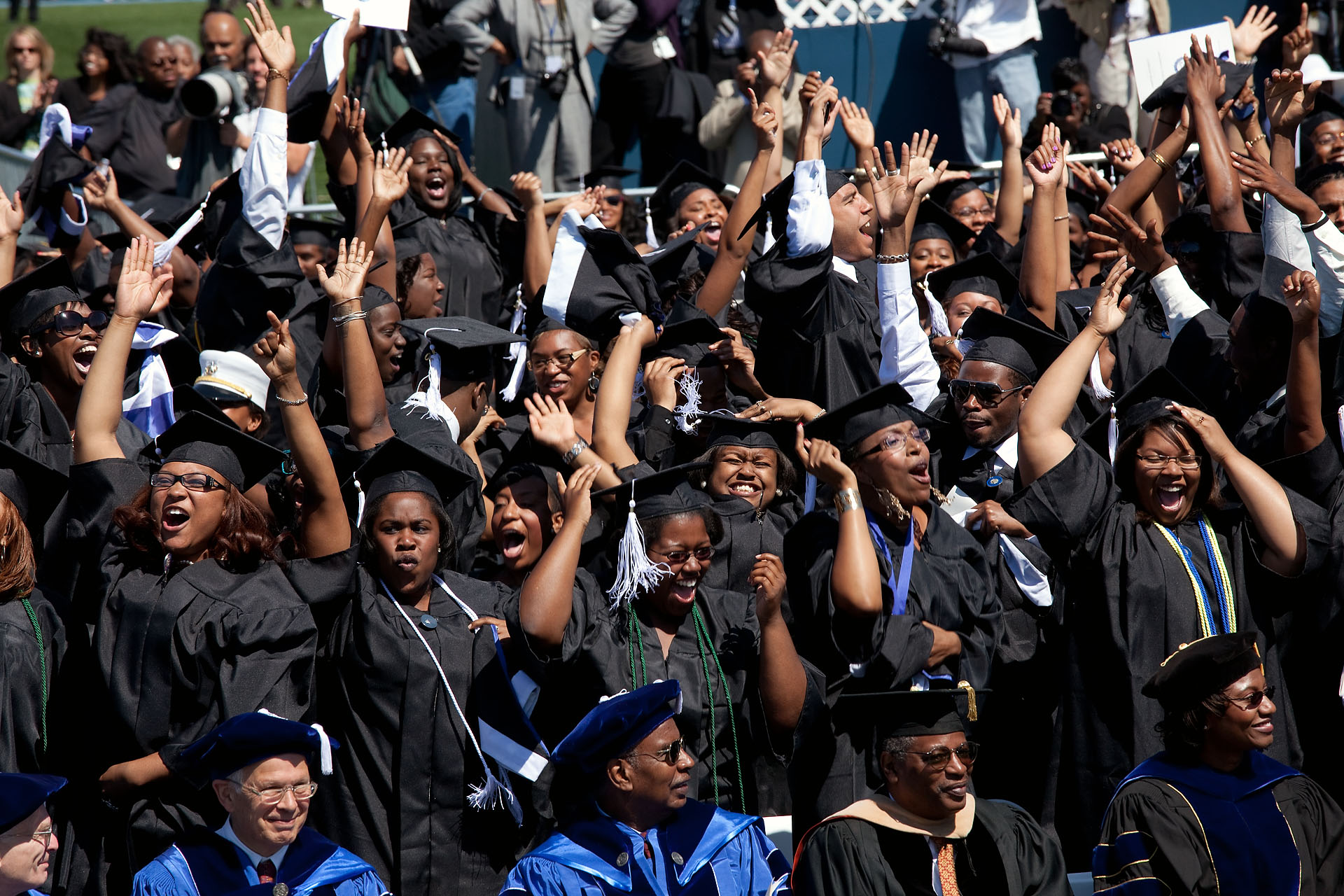By Esteban Fredin
In the United States, about 90% of high school students go to college at some point in their early adulthood, but that does not mean that everyone graduates. Only 60% of bachelor students obtain a degree. Shorter programs, such as professional certificates (≤ 1 year) and associate degrees (two years), have an even worse performance; only 30% of students complete their education.
Critically, these losses do not occur homogeneously among the population. Factors like gender, race, ethnicity and socioeconomic status play a decisive role and highly unequal. More women than men graduate. White and Asian students finish their education more often than their African Americans and Hispanic peers. Part-time students, mostly people with a job and children, give up on completing more often than full-time students, typically young adults with little or no financial obligations. The proportion of students who earn a degree favors the rich over the poor and those in urban settings over rural ones. As the report notes: “These disparities mirror and reinforce other social inequities, and are an obstacle to social progress.”
The scenario is not particularly easy, even for those graduating. The United States is going through a period of strong demographic, technological and political changes. Projections show that by 2040 there will be no ethnic or racial majority in the nation, and automation and international competition will keep transforming the labor market. Consequently, the struggle between democracy and demagoguery is more complicated in this era of fake news. Citizens need a quality college education to help them distinguish fact from fiction and make rational analysis and debate prevail in a media environment that fosters brevity and viral banality.
Faced with this harsh reality, the American Academy of Arts and Sciences (AAAS for short) has issued a report entitled The Future of Undergraduate Education, The Future of America. In the document, expert authors make three priority recommendations for decision-makers in education:
- Ensure that all students -no matter their program of studies- have high-quality educational experiences that prepare for success in the twenty-first century.
- Increase graduation rates and reduce inequalities between different student populations.
- Control costs and increase affordability for everyone who could benefit from access to undergraduate education.
Each of these recommendations is actually a comprehensive strategy broken down into several points and examples of ‘promising practices’ already implemented in some leading institutions (a report brief is also available). In general, the document is an important starting point to begin the discussion about real reform in higher education, as many of its recommendations are not only valid for the US, as Latin America lives a situation in many ways analogous.
Here is a brief summary of the recommendations.
Within the first priority, enhance the educational experience, the report recommends improving the quality of education through better preparation, selection and evaluation of teachers. It also highlights the importance of integrating students with different backgrounds and improve the working conditions of non-tenure-track instructors. Another key component is a skills-based education. Critically, it will also be important to measure the impact of educational technologies in learning; as the report notes, several studies indicate that these new ways of teaching can negatively impact the most vulnerable populations, such as students of low socioeconomic status, and first-generation college students. To ensure this, the report notes that it is necessary for the federal government to guarantee funding for educational research.
As for the second recommendation: increase graduation rates and reduce inequality, the report urges university leaders to make it a top priority. You will require the use of data analytics to measure the impact of their policies. They must also ensure that students have meaningful connections with staff and faculty. An institutional effort is also needed to understand and assist vulnerable groups. It will also be important design pathways to help students save time and money as well as to improve the transferability of credits between educational institutions. The report also considers that partnerships with prospective employers through projects and internships will be very important to motivate students to complete their education. On the other hand, universities have to take an active role in improving precollege education. The report also emphasizes that federal and state government have to become involved at this strategic point.
In its third recommendation: control costs and improve the affordability of education for all, the report proposes a joint effort between government at all levels, educational institutions, and regulatory agencies. It is necessary to improve the grant and loans system and target aid to populations who would benefit the most. On the other hand, it is also necessary to reduce the cost of education without compromising quality.
The future of undergraduate education’s recommendations are wide-span and encompass all actors responsible for undergraduate education in the US. It is a critical and objective publication, yet it brings hope in a time when humanity seems to be moving backward. There is still chance for a better future, and it will be achieved through quality education organized around democratic and inclusive values.
This article from Observatory of the Institute for the Future of Education may be shared under the terms of the license CC BY-NC-SA 4.0 
)
)

)